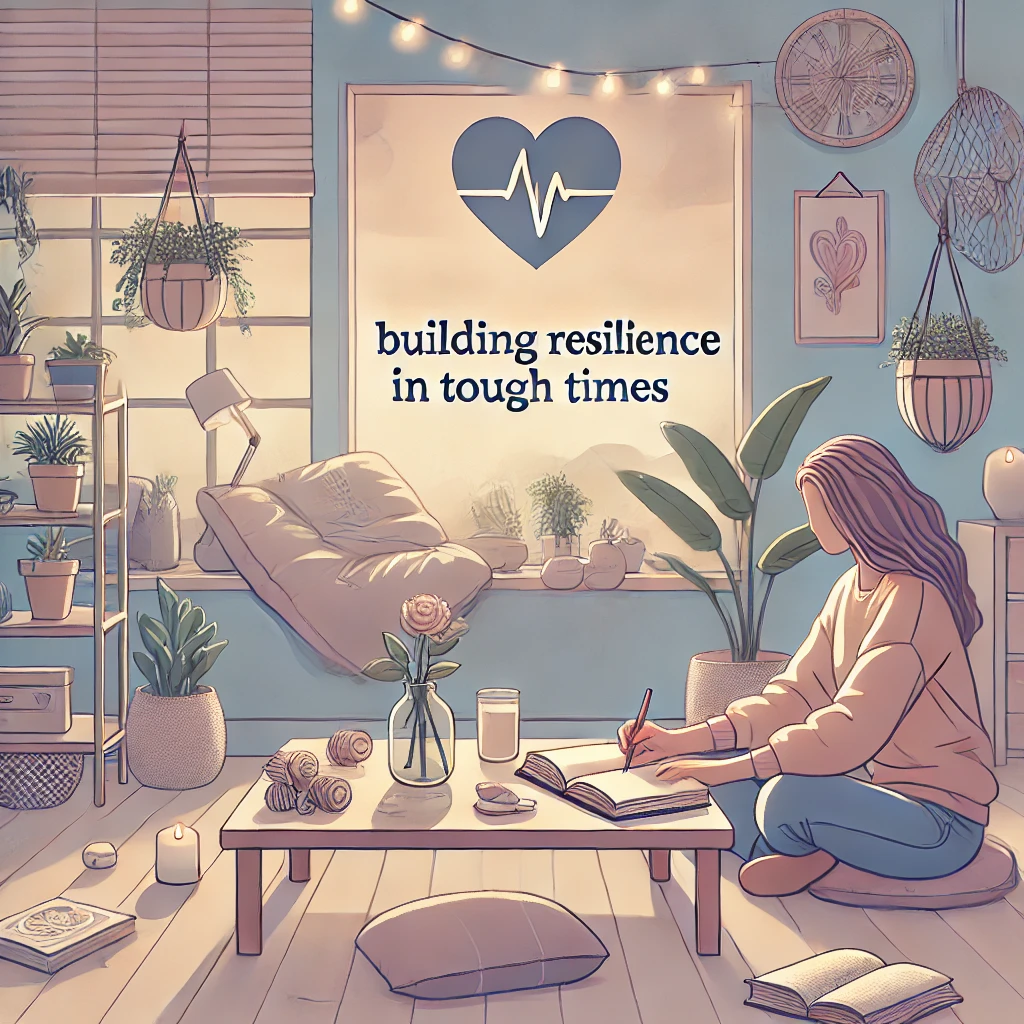
Mental Health Tips for Building Resilience in Tough Times
Introduction: Why Mental Health Resilience Matters
We all face challenging moments—whether it's personal struggles, work stress, or the ups and downs of life. Building mental health resilience is about strengthening your ability to cope, bounce back, and thrive through adversity. The great thing? There are concrete steps you can take to improve your mental resilience, and they start with your daily habits.
1. Fitness Routines: Strengthen Your Body, Strengthen Your Mind
When you think of fitness, your mind might jump straight to weight loss or building muscle, but did you know it’s also a powerful tool for improving your mental health? Regular exercise releases endorphins, your body’s natural mood boosters. Plus, it helps reduce stress, anxiety, and depression.
How to Create a Personalized Fitness Plan
Creating a fitness plan that works for you starts with understanding your body’s needs. If you’re a beginner, try a mix of cardio, strength training, and flexibility exercises. Aim for at least 30 minutes of exercise, 3-4 times a week, and choose activities you enjoy, whether it’s walking, cycling, or dancing.
Affordable Fitness Equipment for Home Workouts
You don’t need an expensive gym membership to stay fit. Resistance bands, dumbbells, and yoga mats are affordable options that can enhance your at-home workout routine without breaking the bank.
2. Healthy Eating Plans: Fueling Your Mental Well-Being
Your diet doesn’t just affect your waistline—it impacts your brain, too. Eating a balanced diet helps regulate mood, improve focus, and manage stress. Consuming nutrient-dense foods like fruits, vegetables, lean proteins, and healthy fats is essential for mental clarity.
Top Diet Trends for Weight Loss in 2025
In 2025, wellness trends are shifting toward personalized nutrition. Think meal plans designed specifically for your body’s needs—whether it’s a plant-based diet, Mediterranean approach, or keto. The key is to avoid restrictive diets that are hard to sustain, and instead focus on long-term healthy eating habits.
Top 10 Diet Tips to Maintain a Healthy Lifestyle
- Eat a variety of whole foods to ensure you're getting all the nutrients your body needs.
- Stay hydrated—water is vital for mental focus.
- Don’t skip meals—consistent eating helps balance your mood.
- Limit processed foods and sugars to avoid energy crashes.
- Incorporate healthy fats like avocado and nuts to boost brain function.
3. Simple Meditation Practices: Finding Calm in Chaos
Meditation isn’t just for yogis or spiritual seekers; it’s an accessible and effective mental health practice for everyone. Taking time to sit in stillness can help lower stress, reduce anxiety, and improve your focus and productivity.
Best Mindfulness Practices for Reducing Stress
Start with simple meditation techniques like focusing on your breath for five minutes each day. Or, try guided meditation apps that lead you through mindfulness exercises. The goal is to make these practices a regular part of your routine, even if it’s just for a few minutes.
4. The Role of Sleep in Mental Health
We all know that a good night’s sleep makes us feel better, but did you know that sleep plays a critical role in maintaining mental health? Poor sleep can lead to anxiety, irritability, and even depression.
The Connection Between Sleep and Productivity
Getting enough sleep—7-9 hours for most adults—can improve your mood, sharpen your cognitive function, and increase your overall productivity. Make sleep a priority by creating a relaxing bedtime routine, limiting screen time, and avoiding caffeine in the afternoon.
5. Self-Care Strategies for Everyday Resilience
Self-care isn’t just about spa days or bubble baths (although those are nice too). True self-care involves setting boundaries, taking breaks when needed, and doing things that recharge your emotional batteries.
Beginner’s Guide to Yoga for Mental Clarity
If you’re new to yoga, don’t worry! Yoga is an incredible tool for building mental resilience. Start with basic poses like Downward Dog and Child’s Pose, focusing on your breath and listening to your body. Yoga helps release stress, improve flexibility, and foster a sense of calm.
6. Wellness Trends 2025: A Glimpse into the Future of Mental Health
The wellness industry is rapidly evolving, and 2025 promises to bring exciting new trends aimed at enhancing both physical and mental well-being. From virtual fitness coaching to AI-driven meditation apps, the future of wellness looks tech-savvy and highly personalized.
Top Wellness Trends to Watch in 2025
- AI-powered mental health tools that track your mood and suggest personalized self-care strategies.
- Virtual wellness retreats offering mindfulness practices and fitness classes from home.
- Personalized nutrition plans based on your unique genetics and lifestyle.
Conclusion: Resilience is Within Your Reach
Building mental resilience doesn’t happen overnight, but with consistent effort, it’s possible. Incorporating fitness routines, healthy eating plans, and self-care practices into your daily life can significantly improve your mental well-being. Remember, the key to resilience is not about avoiding challenges—it’s about developing the strength to handle them when they come. So take it one step at a time, and embrace the power of small habits for big mental health rewards.
Frequently Asked Questions
1. How often should I exercise for mental health?
Aim for at least 30 minutes of physical activity 3-4 times a week. Consistency is key for boosting mood and reducing stress.
2. What are the best foods for improving mental clarity?
Foods rich in omega-3s (like salmon), antioxidants (like berries), and whole grains are excellent for brain health.
3. Can meditation really help reduce anxiety?
Yes! Simple meditation practices help lower stress hormones and calm the mind, making it an effective way to manage anxiety.
4. How can I improve my sleep for better mental health?
Stick to a regular sleep schedule, create a calming bedtime routine, and avoid caffeine or heavy meals before bed to improve your sleep quality.
5. Are there affordable fitness options for people on a tight schedule?
Yes! Bodyweight exercises, yoga, and home workout equipment like resistance bands can be highly effective and budget-friendly.